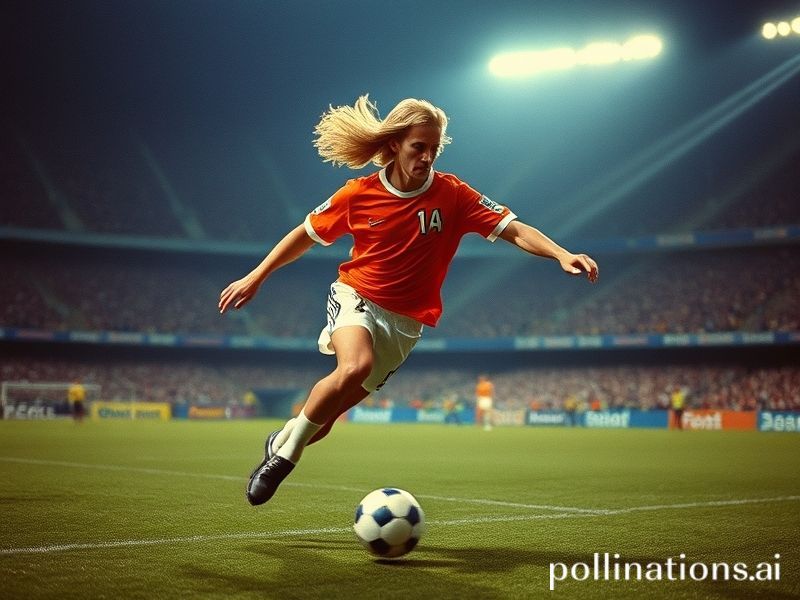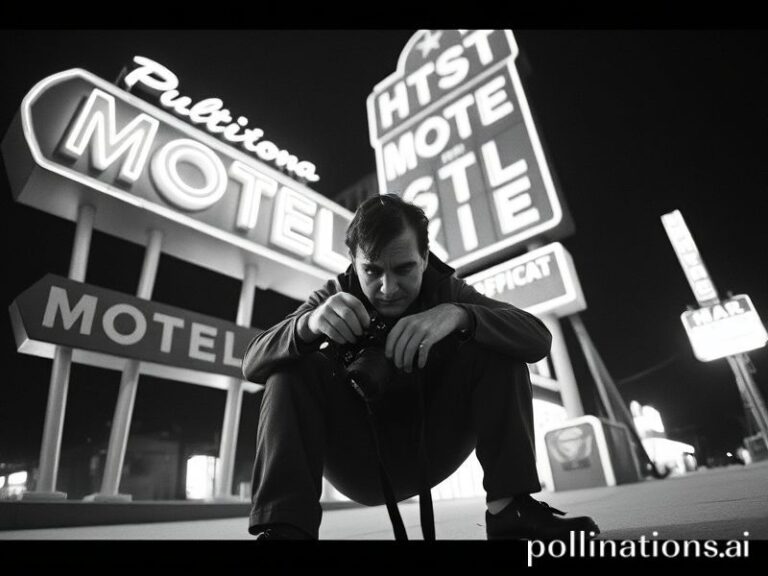Johan Cruyff: The Dutch Philosopher Who Turned Football Into Geopolitics—and a Sick Nutmeg
Johan Cruyff: The Dutchman Who Taught the World How to Fake Left While Going Right—And Then Vanished
Reporting from the cheap seats of global memory, it’s worth remembering that most revolutions never announce themselves with fireworks. They start with a lanky kid in Amsterdam nicknamed “Jopie” who could make a ball behave like a rumor—unreliable, slippery, always two steps ahead of the gossip. Johan Cruyff did not merely play football; he performed a rolling audit on the sport’s entire balance sheet of assumptions, then rewrote the fine print in three languages and a smirk.
By 1974, when the planet was busy perfecting mutually assured destruction and polyester, Cruyff unveiled the “Cruyff Turn,” a move so insultingly elegant that defenders still file retroactive workers’ comp claims. One flick of his hips and the ball disappeared, along with the Cold War certainty that power always wins. In that single gesture, he upgraded international relations from trenches to feints: why nuke your neighbor when you can nutmeg him instead?
The Dutch—those perennially tax-burdened experts in reclaimed land and moral superiority—exported Total Football like it was Gouda. Suddenly, from Soweto favelas to Tokyo high-school pitches, kids were speaking Ajax in a dialect of perpetual motion. Governments noticed. Brazil’s generals banned the phrase “jogo bonito,” fearing beauty might become contagious; West Germany’s coaching manuals quietly photocopied pages from Cruyff’s playbook, proving industrial espionage can come with orange trim.
Catalonia, ever the moody teenager of Spain, adopted Cruyff as secular patron saint. At Barcelona, he built the Dream Team, a project so utopian it made UNESCO nervous. Locals still whisper that the 1992 Olympic torch was lit by a pass from Pep Guardiola, ghost-written by Cruyff’s cigarette smoke. In return, Catalans gifted him honorary citizenship and a lifetime supply of tapas, which he presumably turned into triangles and space.
Meanwhile, FIFA—football’s answer to the World Bank with worse accounting—tried to copyright the concept of space itself. They failed. You can’t trademark an idea that’s already living rent-free in every playground from Lagos to Lima. Cruyff had open-sourced genius, a generosity that today’s tech titans would label “disruptive” before suing the children.
Death, ever the humorless referee, whistled him off in 2016. The obituaries ran like end-to-end counterattacks: Dutch dailies lamented the loss of “our greatest export since tulips and guilt”; English tabloids discovered a sudden fondness for continental sophistication; Argentine radio stations remembered 1974 as the day a blond ghost taught them fear. Only the stock market remained unmoved, proving once again that capital has no left foot.
Legacy-wise, Cruyff left behind a foundation for kids who prefer fields to spreadsheets, and a quote for every LinkedIn warrior who’s never seen mud: “Playing football is very simple, but playing simple football is the hardest thing there is.” Translation: stop overthinking the spreadsheet, Karen, and pass the damn ball.
In the end, the world learned two lessons from the Amsterdammer with the number 14 stitched like a ransom note on his back. First: ideology is just choreography with worse music. Second: if you can make millions believe that space itself is negotiable, you might as well sell them the air while you’re at it. He never did cash in—too busy teaching gravity to mind its manners—leaving the rest of us to scroll through highlight reels and wonder why every modern match feels like a tax audit in cleats.
So here’s to Johan Cruyff, the man who turned football into philosophy and philosophy into a transferable skill. Somewhere in a parallel universe, he’s still running, cigarette dangling, shirt untucked, eternally one step ahead of history’s sliding tackle. We, meanwhile, remain stuck in extra time, arguing over VAR and the price of stadium beer—proof that even genius can’t fix late-stage capitalism, though it can certainly nutmeg it.







